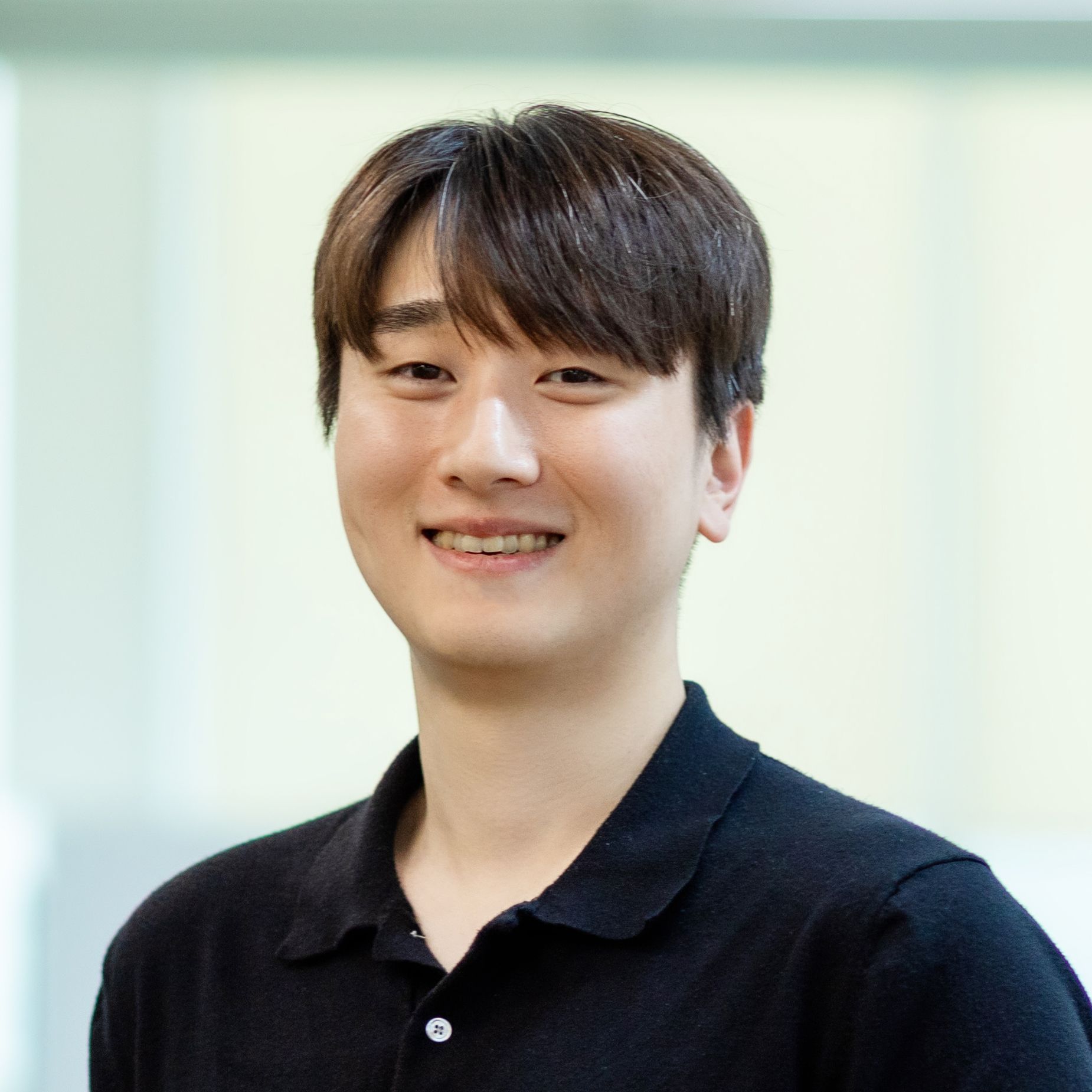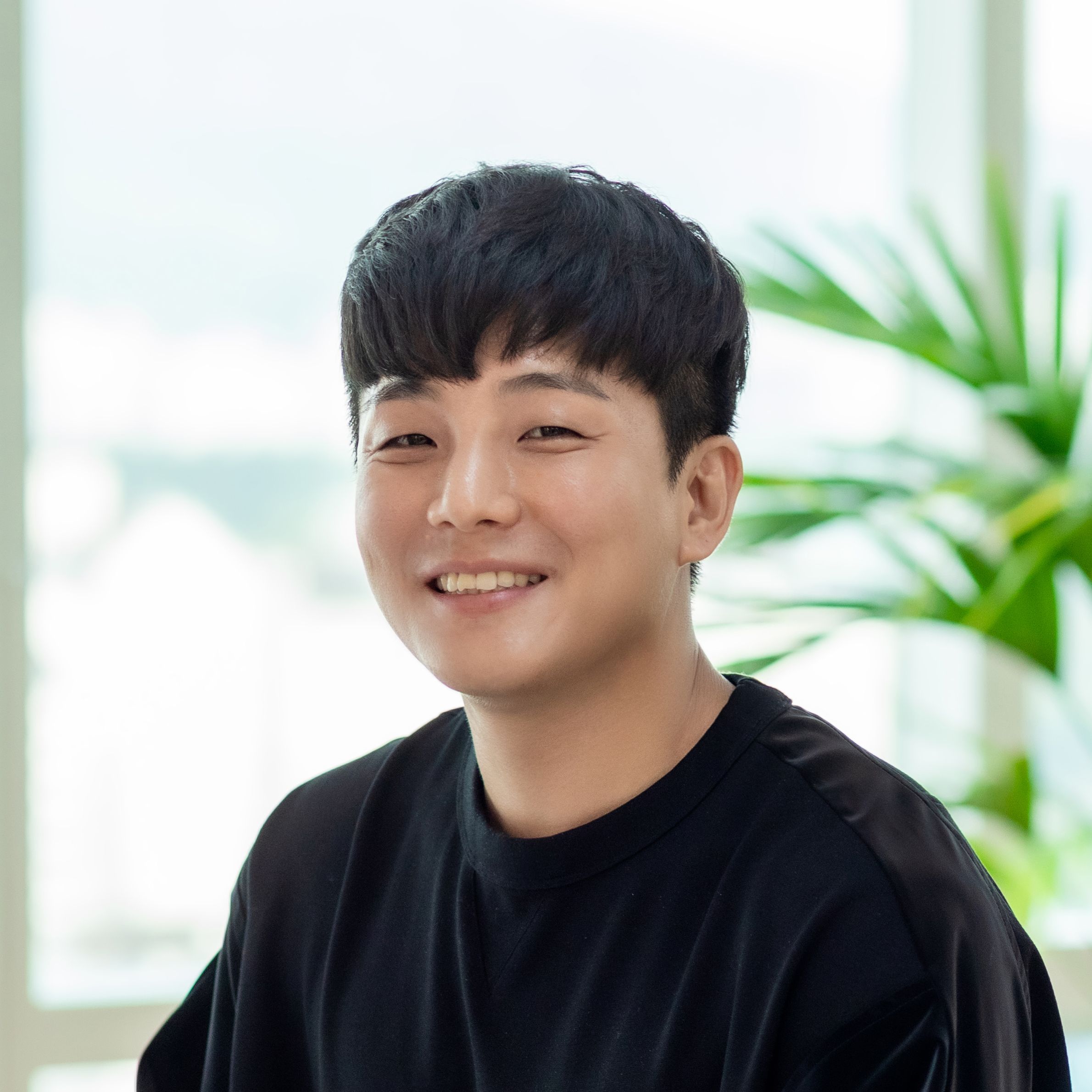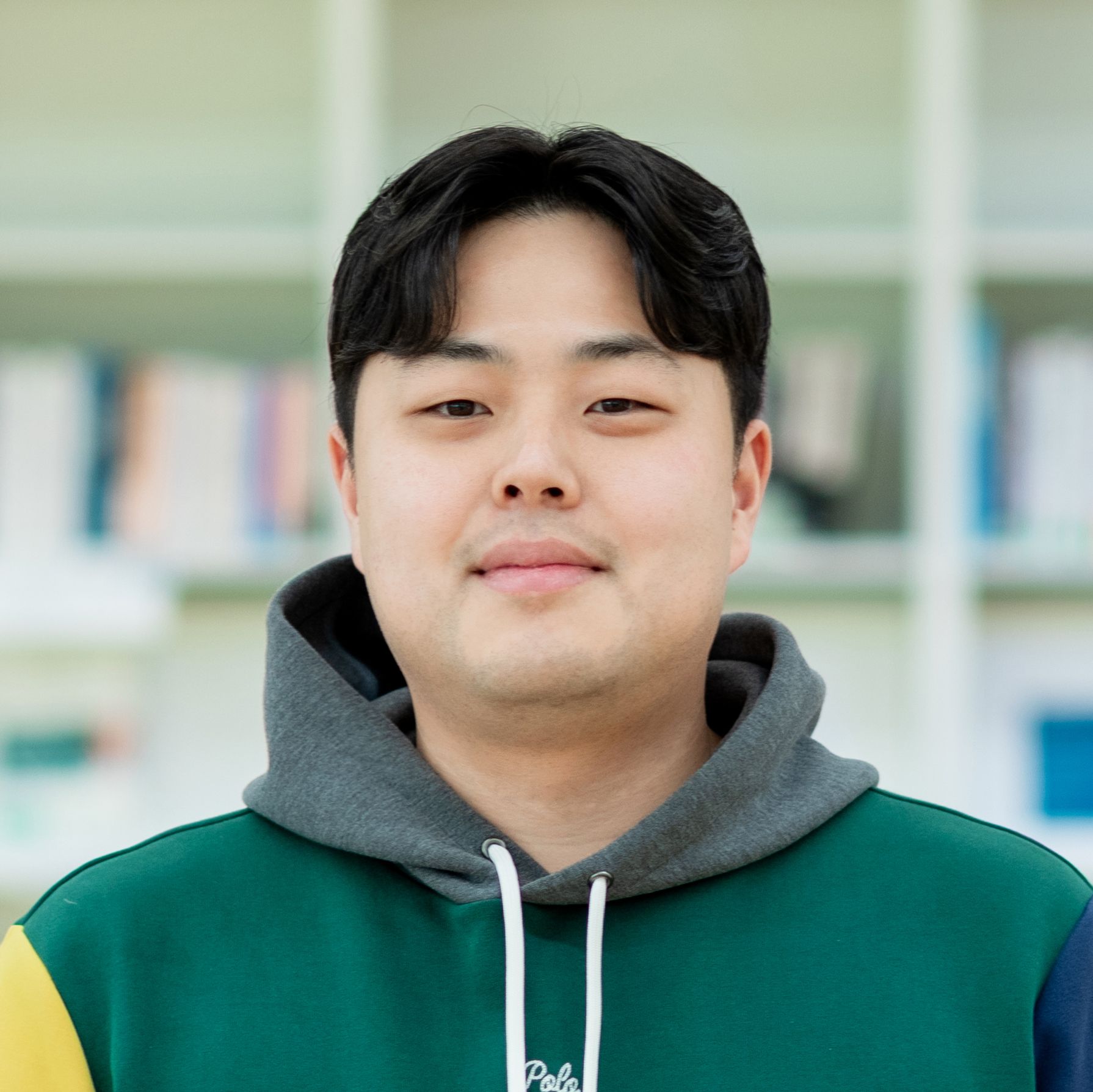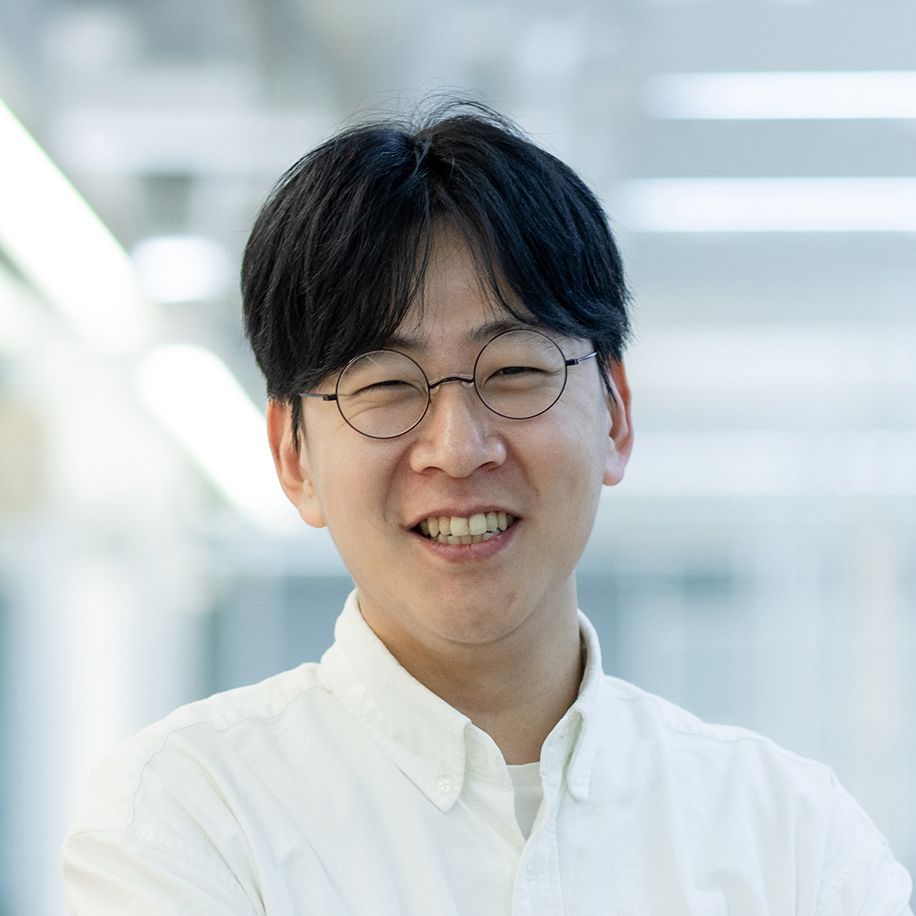Meet the Global LINERs
Engineering
Jinhee Kim / QA Engineering / LINE Plus
"I really enjoy my job," says Jinhee Kim, the person in charge of quality management for a variety of services within the LINE app. The interview was filled with her passion for her role and love for the camera service. Let's learn more about the skills and experiences Jinhee has gained through her time at LINE.
A quick three-line summary
- Jinhee is responsible for ensuring the stability and quality of LINE services.
- Collaboration and flexibility are key skills for a QA Engineer.
- She continues to grow through LINE's culture of listening and providing feedback.
About Work
Q Please introduce LINE's Service QA Team and your responsibilities.
The Service QA 2 team is a subset of the Quality Management organization, which oversees and improves the quality of LINE's mobile app services. Our team manages the quality of various services including LINE profile, OpenChat (an anonymous chat service where people can discuss all sorts of topics), Keep (a content storage service within the LINE app), Album (a folder for managing photos and videos in chats), and the camera service. Our duties include reviewing planning and development outputs, conducting test management activities, analyzing issues based on service logic and logs, continuous quality management before and after releases, and enhancing the QA process. We also collaborate with LINE members to improve quality.
Q In addition to your main tasks, what other duties have you performed?
Before joining LINE in 2013, I worked at Naver. The first service I was responsible for at LINE was OpenChat. Initially, I mainly handled the camera service, but then I got the opportunity to manage the quality of the messenger service, one of LINE’s most important features. OpenChat's anonymous structure made users feel more comfortable using the service. Observing users creating and using chat rooms according to their preferences and interests, I noticed the many different ways they’d use the service, not just following a few general patterns.
Q How did you start your career as a QA Engineer?
During my senior year in college, I took a year off and started working part-time as a software tester. Although I wasn't familiar with the tester role, I thought it would be a good opportunity to get some indirect experience in the development field. I found the job enjoyable as I worked for about a year, especially the thrill of finding bugs and solving problems, and the satisfaction of constantly learning to validate outputs. Thankfully, the company I worked for allowed me to experience the entire process from planning to release, even providing necessary training. This naturally led me to gain experience in QA, and I've been building my career ever since.
Q What’s your usual work schedule like?
When working from home, I always wear socks and slippers in my workspace. I enjoy my time at home, so I've spent quite some time separating my workspace from my living space. My workspace is neatly structured with a black tone, giving it a very office-like feel. As soon as I step into this space with my socks and slippers, I feel like I'm in work mode. I start my day by checking my schedule. Since becoming a lead, I've had more meetings, so schedule management has become even more important. Then, I check each service our team handles for any issues or risks. I also collaborate with testers and do real-monitoring of the LINE mobile app. I tend to monitor after checking for new version releases or event openings. I also manage the team organization from time to time. I wrap up the day by checking the next day's schedule and organizing my to-do list.

Thoughts on competencies
Q What competencies and qualities do you believe are necessary for delivering excellent performance in your role?
Collaboration and communication. While technical skills and understanding the system are important, I believe collaboration skills are even more crucial. We need to communicate with various members, including testers and all project members, to solve problems. When interviewing candidates, I pay close attention to their communication skills and look for any collaboration-related strengths. The discussion points for a QA Engineer are issues, risks and bugs, or, in other words, "problems." It's all about communication: how to raise issues, how to infer what people mean, how to derive solutions. If communication isn't smooth, it takes longer and leads to unreliable results, which could affect user convenience after release. So, I think collaboration and communication skills are very important. Next is flexibility. Depending on the situation, such as policy issues, cost aspects, international affairs, we need to respond flexibly. For instance, we had to respond urgently to unexpected safety issues like pandemics or earthquakes. As the LINE mobile app has many global users, it's not only important to improve the quality of service, but also to respond flexibly and quickly to various situations.
Q When working for internationally based users, are there any considerations or preparations you like to focus on?
Being in Korea, there's a physical distance from the users around the world, and cultural and linguistic differences that can't be ignored. For instance, in Japan, I use popular social media apps to set various keywords for monitoring, but often translations are unavailable. In such cases, I ask for help from project members in the same country or carefully review the information regularly shared by the operation team. I also analyze user usage patterns after releases to see if there are any peculiarities among users by country.
Q Do you have any special incidents from managing global services you’d like to share?
When I joined LINE, selfies were trending. LINE was keen to incorporate this trend, especially focusing on the camera app and filter creation. The design team would create filters, and I participated in verifying and releasing them. There was a particular filter that I wasn't satisfied with due to its flashy and overwhelming colors, and I expected its usage rate to drop. I even shared my opinion with the design team. However, contrary to my expectations, this filter was very popular in Southeast Asian countries. I learned about the color preferences and common photo poses of users from various nationalities. This episode significantly broadened my perspective and thinking.

Challenges and Failures
Q They say we learn more from our failures than our successes. Tell us about one or two of your failures.
Early in my tenure at LINE, I missed a bug due because I didn’t properly understand LINE's mobile app ecosystem and services. It was a project incorporating the Note feature (a bulletin board function in the chat room) into OpenChat, which previously only had a simple messaging chat function. Since the Note feature was already operating in the general chat service, I thought it could be quickly applied to OpenChat with some adjustments. However, after the release, an error occurred in a part of code I hadn't sufficiently verified, leading to a hotfix (an urgent patch for issues that arose after the release). I missed this due to a lack of understanding of various overall systems and services within LINE, such as platform characteristics, associations with other services, and compatibility with older versions. It was a wake-up call to fully understand the platform and server structure before undertaking tasks.
Q What does the word “challenge” mean to you? Has there been a particular situation or turning point where you feel you grew significantly through your experience at LINE?
Everything seems to be a challenge if it's not a task I've decided to undertake myself. As I mentioned earlier, the ecosystem of LINE's mobile app is very complex. Although various services have complex relationships, everything must work synergistically, so it's not enough to just do well in my service. When reviewing comprehensive factors, I need to understand the overall system, keep up with tech trends, and constantly check the progress of other projects, not just mine. It's a continuous challenge, but I feel these tasks are contributing to my growth.
Special experiences at LINE
Q Please tell us about the colleagues that you work with at LINE.
Our team members are tightly bound by a strong sense of responsibility. Once the app is deployed, error logs and user reactions come in real-time, so the speed of receiving results from their work is extremely fast. Also, improvements in quality are clearly visualized. Therefore, all our team members carry out their responsibilities well. Since typically one QA Engineer participates in a single project, they work proactively with a sense of ownership. Outside of work, we engage in various activities for team building, such as autumn picnics or going to performances. Through these activities, we've come to understand each other better and feel closer. Trust, initially built solely on work, has strengthened through these diverse activities. Understanding each other's personalities and situations deepens empathy, naturally having a positive impact on performance. I'm always grateful to all team members. I've been a lead for just under two years, so I'm still a novice manager. I want to study harder to become a lead who can help my team members' career growth.
Q Is there any benefit or cultural aspect at LINE that you think is particularly notable?
The culture of listening and providing feedback. This is especially noticeable during meetings. When I speak, many people listen carefully, ask detailed questions, and provide thorough feedback. When I first joined LINE, I felt such consideration and respect that it motivated me to strive to become someone who could contribute, even if just a little. Also, when an issue occurs, we always go through a reflection phase. This isn't about pointing fingers but discussing preventive measures for the future. Discussing from various perspectives and exchanging feedback allows us to stimulate each other's growth positively. It encourages me to make more evidence-based statements, and through this culture, I'm growing as well.

Wrap-up
Q Any message for those interested in this position?
We welcome those who are self-motivated! If you can develop your own abilities, we believe you can achieve satisfying results at LINE. There are no obstacles to growth here. So, if you have clear goals, joining LINE and gaining various experiences is quite beneficial.
Q Curious about where your professional journey could take you next?
Check out the career opportunities on our Jobs page! - Service QA Engineer




